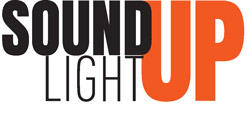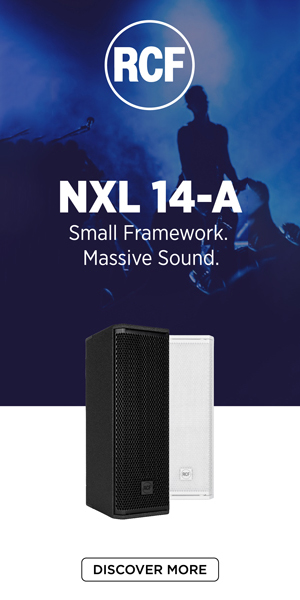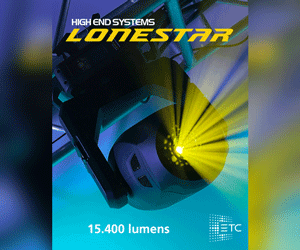How many of you would have bet that one day a tennis tournament would also turn into a light show? It is hard to imagine, for people who see tennis as closely linked to tradition.
Yet, for some years now, even tennis has succumbed to the charm of technology, and we are not just talking about the hawk’s eye that determines whether the ball is in or out or on the line with infallible precision. Since the Next Gen Finals in 2017, the ATP Tour has gradually included more show-like elements in its tournaments, right up to the Nitto ATP Finals this November 2021. What was held at the Pala Alpitour in Turin could also be defined as a true light show.
We spoke about it with the lighting designers Marco Piva and Marco De Nardi: “Using moving head lights to add spectacle to matches in which the eight top tennis players in the world faced each other was an enormous challenge. On the one hand, there is the appeal of implementing a completely new idea, but on the other, there is the fear that something might go wrong, or not be appreciated by the champions themselves on the court.”
Moreover, the initial requirements were very stringent. The entire 23×45 metre court had to be covered with even lighting of at least 2200 lux all over, and light had to be ensured on the centre of the court from the ground up to at least twelve metres above it.
“I looked at several options from various lighting manufacturers, and eventually opted for a mix of Claypaky fixtures. Over 300 luminaires in all, including Arolla Profile HPs, B-EYE K20s, Midi-Bs, Mythos 2s and Axcor Profile 600s.”
The main light needed was of course the white light for illuminating the court. There was no room for error. Tennis players can be disturbed extremely easily, and a poorly placed or underperforming light could have created problems.
For this reason, the 120 Claypaky Arolla Profile HP moving heads not only provided 3400 lux of uniform light – well above the minimum requirements – but also perfectly replaced the light normally provided by fixed units. Moreover, they afforded the lighting designers a number of spectacular lighting options that could not have been achieved otherwise.
For example, the Arolla’s precise framing system allowed them to pick out the lines that mark out the court. This effect was used when the players were not on the court, before the match and during breaks in play, to create a spectacular three-dimensional effect. It looked almost as if the court was taking flight!
A total of 132 Claypaky MIDI-Bs, 46 Claypaky B-EYE K-20s and 46 Claypaky Mythos 2s were used on the audience, as the two LDs explained: “During play, the audience was bathed in a fixed blue light, which is the ATP’s colour. When the players changed ends, the blue changed to electric blue and the lights moved: the effect on the audience simulated something similar to waves of light.
To do this I used B-EYE and Midi-B units as the colour base, and Mythos gobos to create synchronized movements over the entire stadium. The absolutely most dynamic moments were when the players entered the court and were welcomed like true stars, and during the prize ceremony. Lastly, I picked out the players’ seats and the logos on the nets with white light using Axcor Profile 600s.”
“The exceptional thing about this rig,” continued De Nardi and Piva, “is that we met all the lighting requirements using moving heads designed for the entertainment industry. We used them both as key lights to illuminate the matches and as show lights on the audience and the court itself, without using a single traditional light. The experiment was a success. We received a lot of praise and appreciation, and all the lights on the court turned out to be very reliable, despite being used intensively for over twenty hours a day.”
All the Claypaky fixtures were left hanging and were used to illuminate Italy’s Davis Cup matches, which also took place at the Pala Alpitour from 25 November. The lighting concept was very similar to the one used for the ATP finals, with one important difference: the colour the audience was bathed in was green, not blue, as the organizers requested.
“The trend,” concluded De Nardi, “is to use technology to bring the show-like elements in tennis up to the level of other sports, as already occurs – for example – in basketball, Formula 1 and even some football stadiums.”
The rental company Audiolux, based in Zelo Buon Persico near Lodi, provided all the lights at the Pala Alpitour for the Nitto ATP Finals and the Davis Cup.
Alberico D’Amato, Claypaky Sales Director, said: “tennis has always been a great passion of mine, and our being chosen to light two of the biggest tennis events in the world filled me with joy. We will work further along this path to ensure that sport and entertainment become an ever more inseparable combination.”
For more info about Claypaky fixtures, you can visit www.claypaky.com









